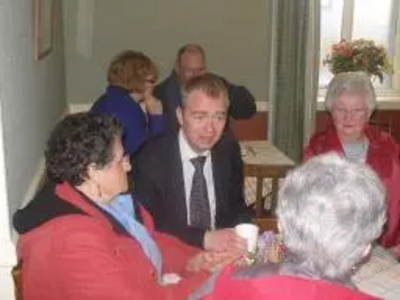Plans to bring the cheque into the 21st century would be a boost for rural areas says Tim

South Lakes MP Tim Farron has hailed plans to make cheque depositing easier and quicker, saying that they would help small businesses and people living in rural areas who find it difficult to get to bank branches.
The Government is looking at plans to use new technology to allow people to send a picture of a cheque to banks, rather than having to visit a branch. New technology could also see cheques being processed in two days, rather than the current six.
Ministers at the Treasury are going to consult with businesses, banks and consumers about new legislation to speed up cheque payments and to allow banks to process images rather than paper. 'Cheque imaging' does not require a hard copy of the cheque to be present at every stage of the paying-in process. That means that time spent transferring it between different banks and central clearing depots is saved as well as reducing the overall costs.
Tim supported the successful campaign to save the cheque, launched in November 2009 by Lib Dem MP Mark Hunter, after they were due to be phased out of use by October 2018.
In July 2011 the UK Payments Council reversed their decision to scrap cheques and agreed to continue their use for as long as customers needed them.
In 2012 nearly £840 billion of cheques were processed, accounting for 10 per cent of all payments made by individuals. 25 per cent of payments made by small businesses in 2012 were by cheque.
Tim said: "These changes would boost the status of the cheque. The decision in 2011 to save the cheque was a victory for common sense and came as a relief to small businesses, traders, charities, community groups and individuals who rely on cheques.
"Many people who use cheques will be pleased that the Government is looking at ways to bring cheques into the 21st century, and is committed to their future as a payment method."